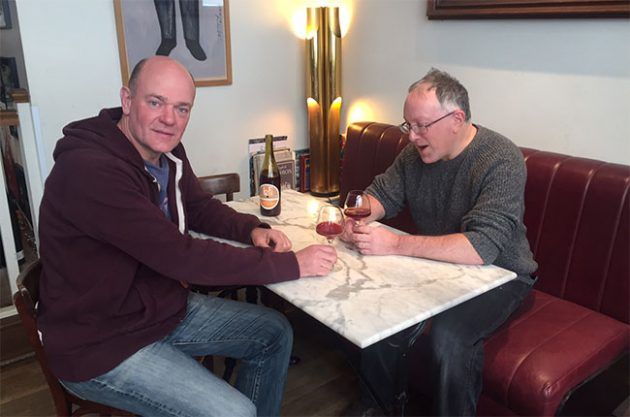1988 brought us many things. George W Bush as the President of the United States, classic films such as Die Hard, Rainman and the Last Emperor, and the arrival of Rick Astley and “Never Gonna Give You Up”. It also saw the arrival of Les Caves de Pyrene on the UK wine scene…
You are celebrating 30 years of Les Caves de Pyrene – how do you look back over the last 30 years?
Just gratified that we are still around! It has been a rollercoaster ride, the best of times, the worst of times etc. We’ve experienced several recessions in the restaurant sector in that period, survived severe cashflow problems and progressed from a three-person band selling wine from a van to working out of small shop to where we are today with associate companies in Spain, Italy and Australia and, dare I say, an international reputation.
How do you think the company has changed in that time?
The spirit of the company hasn’t changed at all. It is the people who make the company what it is – we value passion, friendliness and loyalty and reward it. A lot of people who work for us are now shareholders in Les Caves. I think that is one of the golden rules of business.
We have never chased growth, but have been content to grow organically and sustainably. That is still the model. And to reinvest back in the company and diversify with lots of different projects. Keeps us fresh!
We saw a noticeable increase in business in the early 2000s. This allowed us to open Terroirs, the first of our natural wine bars. That was the catalyst for greater change in terms of the buying and also the way we were perceived by restaurateurs in particular.
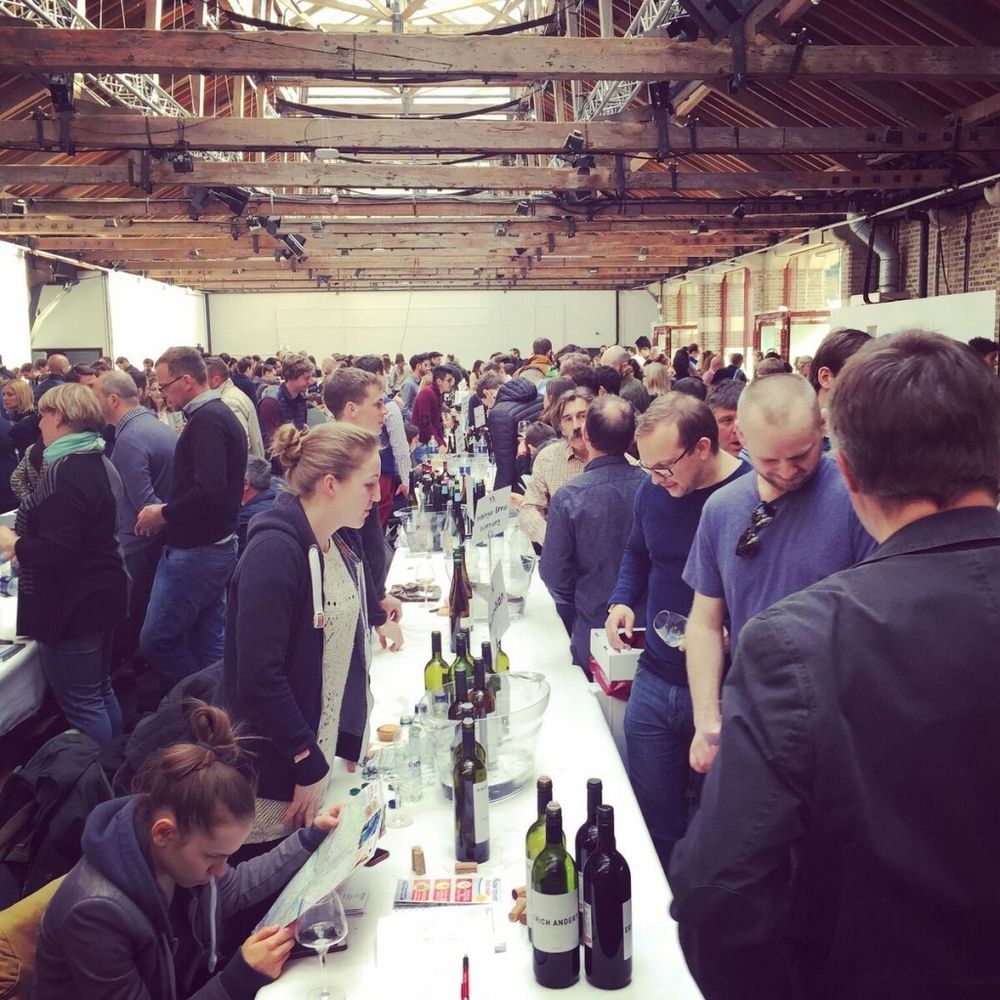
As well as the different styles of wine, the The Real Wine Fair looks to change the way big tastings are organised
The Real Wine Fair was another major milestone. This event became a major investment of time and money for us encapsulating everything that we believe in – hand-crafted wines, charismatic communication about a beautiful product, but above all a celebration of organic, biodynamic and natural wines.
What have been the biggest changes you have seen in the on-trade and your customer base in that time?
In the early days we were pigeonholed as French regional specialists. Even when we began to specialise in Italian and then Spanish wines, customers couldn’t reconcile the specialist-sounding name of the company (Les Caves de Pyrene) with an ability to buy outside our natural borders! Now we ship directly from growers from around the world and have a noteworthy portfolio of growers from Australia, New Zealand, USA, Austria, Georgia…
We never sold to supermarkets and the high street chains. The biggest change has probably been the growth of the independent retail sector. This has been very positive. The on-trade sector is febrile. I think we’ve seen it all and we have developed a sense for what works and what doesn’t. There was a vogue for building restaurant empires a few years ago. It was never sustainable and we are seeing the fallout now.
There are some great operators who love food and wine. The nature of the relationship between the wine merchant and the sommelier/wine buyer has changed enormously since I first started selling. It used to be us and them, an almost adversarial relationship, as if you were trying to force wine upon them. Nowadays, the (best) relationships are akin to partnerships. We socialise with a lot of our accounts, take them to visit vineyards, and generally get to know the people behind the restaurant.
Although the wine scene in the UK is constantly evolving and there are constant innovations, we have tried to cleave to certain principles. One is to never track trends or be overly exercised by what others are doing. If you have faith in your wines and the quality of the product (and would drink these wines yourself for the pleasure of drinking them) then you are probably on the right track.
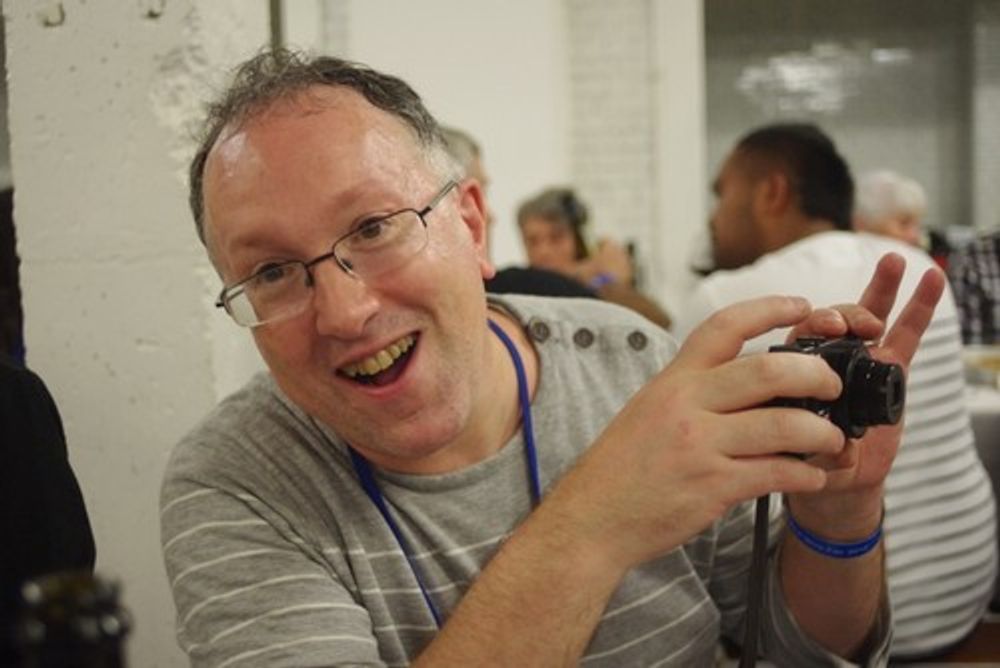
Is there really only one Doug Wregg?
What would have been the main wines you were buying and importing in 1988? How does that differ to what you are mainly selling today?
Our list comprised seven Madirans, six Jurançons and odds and sods of Gascon loveliness. It was a piffling 10 pages long (over 400 now!). There were Bordeaux petit chateaux, a Sancerre from a domaine that we still work with and some super cheap and very nice vin de pays from Gascony and Gaillac. The wines were obscure and no-one could pronounce them. To be fair people couldn’t even pronounce Les Caves de Pyrene, so we were definitely on a winner.
Today, well. Wine sales are seasonal. During June and July the sales of rosé were beyond belief. It was if people were buying a colour alone. We could have pumped pink wine out of the ground and people would have bought it!
Otherwise, I have noticed lots of changes, especially in the last five years. Once upon a time Pinot Grigio, Rioja and Argentinean Malbec ruled the roost. Sales of all these obvious brands have been decreasing for us, replaced by more expensive, and, dare I say, more interesting wines that have been made with care and reflect the place they come from – Verdicchio and Rosso Piceno from Marche, for example, organically farmed Muscadet, natural red and white wines from Sicily. There will always be Picpoul de Pinet and Marlborough Sauvignon, but I like to think we are selling interesting organic versions rather than cheap generic examples.
Has wine become more important to the restaurant trade over the last 30 years? If so how?
There is so much more choice now. Loads of small specialist wine companies have emerged, offering really interesting wines of provenance. They are run by people who care, rather than those who are flogging a branded product. The demand is there; sommeliers are more interested and informed. Lots of people in the on trade are doing work experience in vineyards and wineries. We can talk about wine in terms of the emotions it evokes; this is part of the process of demystification which is essential if we want to communicate about wine at every level.
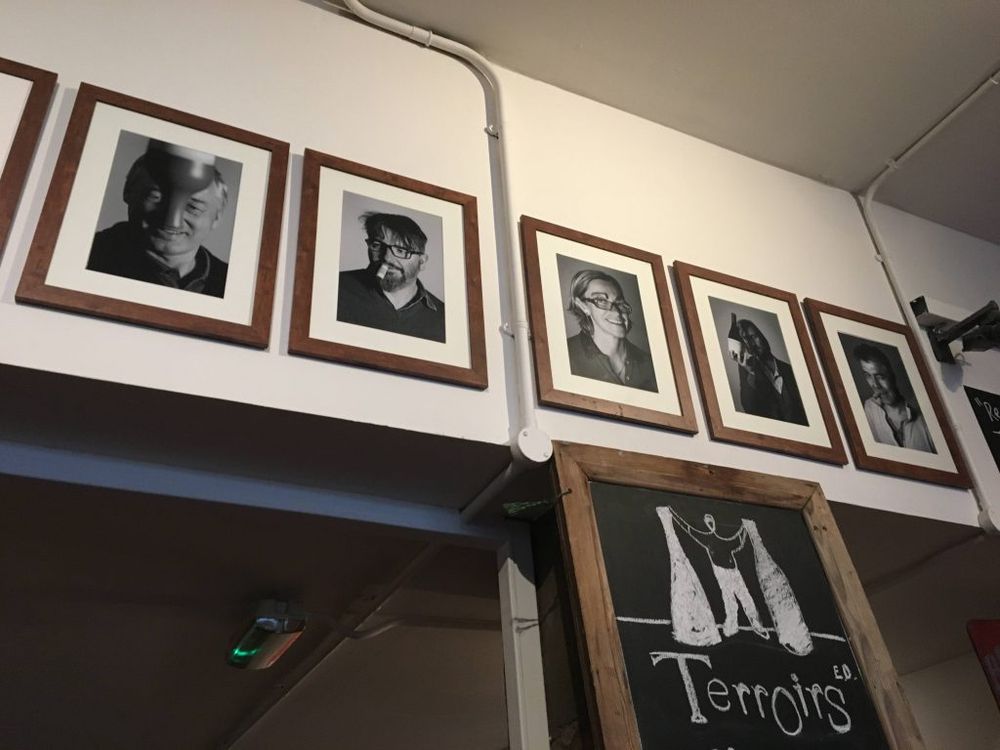
What has driven those changes in the on-trade?
A new generation of wine drinkers and more open-minded people entering the wine trade. It is a kind of generative mutuality. This generation did not grow up with the old certainties, revering the classic wines from Bordeaux, Burgundy, Tuscany and California. They don’t care so much what critics think and say. There is also a shift towards discovering wines that have provenance and a story attached to them and a general belief that one should support the endeavours of small growers. It happened with food – artisan cheese, bread; it happened with craft beer. Wine is no different. Whether or not the term has become clichéd, artisan wine is entrenched in our vocabulary.
The natural wine phenomenon has galvanised debate and also encouraged consumers and sommeliers to have the courage of their convictions. If you go to other countries which have a strong quality-driven wine-drinking culture, you will find that natural wine has stimulated this interest. This is a counter-cultural element here; you can also make a case that the power of social media, with people sharing their wine drinking experiences, has created a new momentum and energy in our wine culture.
How do you think restaurant customers interest in wine has changed in the last 30 years?
Customers are way more adventurous, but then wine service has improved beyond all recognition. It used to be very formal and transactional. Once you ordered your bottle of wine you were doomed – in an existential sense – to enjoy it. Nowadays, you will be able to try loads of things by the glass and find what you like. Restaurants have a more relaxed approach – if you don’t enjoy something the sommelier will not force you to drink it, because he or she know that they can sell it someone else. This democratisation of wine gives the customers greater confidence in that they do not feel any more that they have to live up to the sommelier’s expectations!
And ease of travel helps. Vineyard tours and visits – Europe is so accessible and consumers are interested in the gastronomy of different places. Being open to different foods and taste sensations means that you are open to different styles of wines.
What have been the biggest challenges?
The main challenge for Les Caves was coping with growing from a small company to a medium-sized company. To function efficiently we had to invest in creating a strong back-of-house team, but not over-reach. Digesting growth is a fine balancing act (to mix my metaphors).
Expansion in the restaurant sector has been problematic. With easy money available a lot of people opened restaurants without sufficient expertise. A saturated market is an unhealthy market. The free market in rents is scandalous and this harms good businesses. Late payment or bad debt is the inevitable result; this affects the cash flow of a wine company, which in turn impacts on payment to suppliers.
The things you are most proud of looking back?
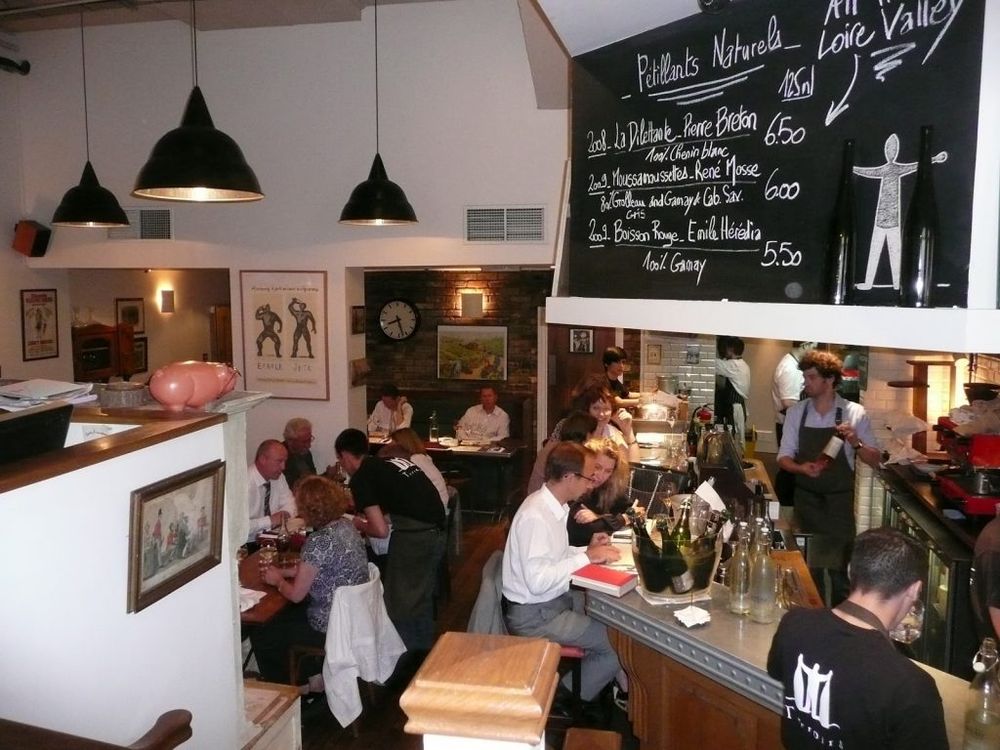
The iconic Terrroirs that has done so much for the UK dining scene
I was so proud of the opening of Terroirs. For me wine is all about hospitality. The first couple of years were crazy, so busy, so many people curious to see what all the fuss was about.
The Real Wine Fair as well. The consumer day always has a palpable buzz of engagement. I love the idea of exchange, of bringing together growers from all over the world. As well as consumers and trade tasting the wines and talking to the growers, the growers themselves taste each other’s wines and are moved, or develop friendships. There are always great parties too and I get a vicarious thrill from seeing “copinage”* in action. *copinage = friendship through drinking
Where next for Les Caves?
Sounds boring, but a period of consolidation. Not every crazy idea works or even gets off the drawing board. We will continue to network restaurants, growers, importers and when we do this, something always emerges. It is like a wild ferment in wine; you are never sure what is going to result, but there usually is some wine at the end of the process.
Do you think your best days are still ahead of you?
Probably! But you should never forget your roots and try to be as humble as possible. A lot of people talk about being part of the Les Caves de Pyrene extended family; our feeling is that we want to work with people we love (and respect) and give them a helping hand and keep them as close as possible. Ultimately, the people you work with and who work for you are your greatest resource. Each day that passes you become more aware of the connectedness of the business. We are responsible for so many people -the people who work for Les Caves in UK, those in other countries, the employees in the wine bars, and, of course, the growers we represent.
Any stand out people you would like to say thanks to who have helped Les Caves story over the years?

Les Caves de Pyrene is very much the heart and soul of Eric Narioo
This would be the longest list and I’m terrified of missing people out.The founder partners – when Les Caves was a teeny-tiny thing – especially Liz Reid. She and Eric (Narioo) did everything between them. Les Caves would not exist now without the relentless hard work of its founders. Eric Narioo was, and is, the spirit of Les Caves, an irresistible force of ideas, strong will and energy.
Growers who have been on the journey with us deserve a mention – Samuel Guibert of Mas de Daumas Gassac, John Bojanowski of Clos du Gravillas, Patrick Sullivan in Australia, Alex Dale of the Winery of Good Hope in South Africa and John Wurdeman of Pheasant’s Tears in Georgia. Our South West growers who have been with us since the very beginning – Luc de Conti, Jean-Bernard Larrieu and Pascal Verhaeghe – and their families. The Bourgeois Family in Sancerre. Alice Feiring has been a dear friend and guide; Jamie Goode has been very supportive also.
Chef Ed Wilson. And countless customers who have become friends and allies. And my colleagues – they know who they are, but you can never thank them enough, but a special word for Christina Pickard who does our social media and helps with our PR.
Personal highs and lows over the last 30 years?
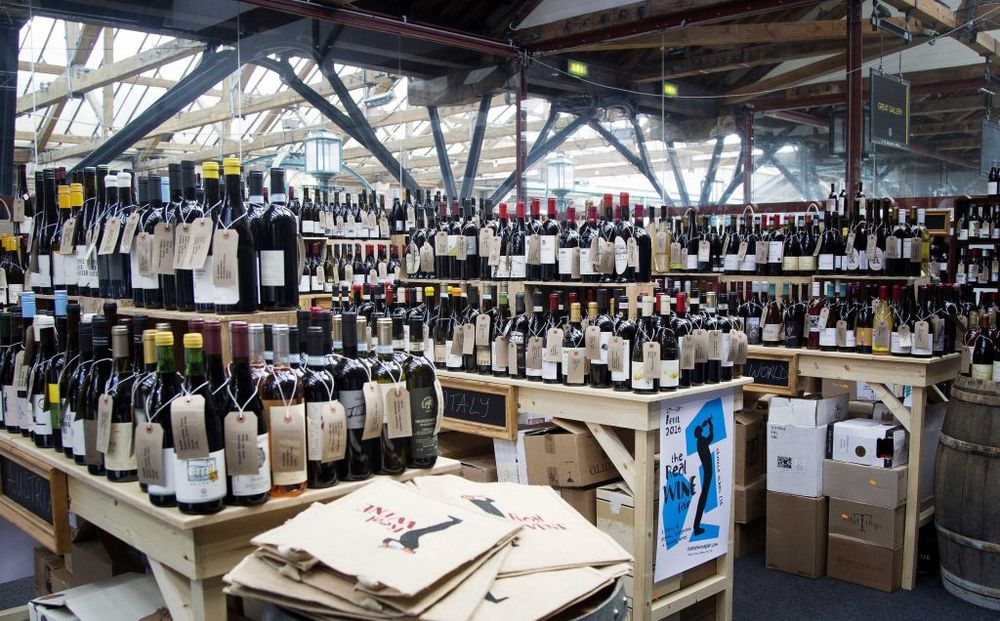
The spontaneous reaction of consumers, trade and growers to a succession of Real Wine Fairs. I love it when collective effort pays off – so much work goes into the organisation of this event (the people in our office – Amy Morgan, the managing director of Les Caves, Vanessa Woodfine, Vicky Riddell – and others in previous years – are unsung heroes). Virginie Champalou and Danny McDermott also put in a monster shift at our pop-up shop at the event.
Back to Terroirs. A memorable night when there were queues stretching down the street to get in – when does that happen? Inside the restaurant customers were spontaneously getting up and wandering over to other tables, exchanging wine with perfect strangers. The atmosphere, to coin a cliché, was electric, pure gastronomic joy.
Personal highs. The friendships. It is a privilege to learn from vignerons who have a deep understanding of the land – Kelley Fox in Oregon, Deirdre Heekin in Vermont, Sepp Muster in Styria. Listening to them gives me a fresh (and more mature) perspective on the wine world.
Anything else to say?
It has been a rollercoaster ride over thirty years and we’ve experienced financially precarious times. Although things are more secure now and the company is run with ever-greater professionalism, we will never rest on our laurels. The word “legacy” is over-used, but it would great to think that Les Caves will be around in another thirty years’ time, giving employment to many and pleasure to even more and that the extended family will be even greater.
- You can pay your respects and taste their wines at the same time at the Les Caves de Pyrene 30 year tasting which takes place at The Hellenic Centre, 16-18 Paddington Street, Marleybone, London, W1U 5AS between 10am-6pm. Email pr.events@lescaves.co.uk to register.
